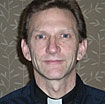Reading sermons has never been very inspiring to me, and many of my pastoral colleagues agree.
So when Sandy, a member of our congregation, asked me to consider trying to publish my sermons, I was not enthusiastic.
I told her that pastors generally do not find written sermons very compelling. Hearing a good sermon can be wonderful, but reading sermons is about as boring as it gets.
Sandy countered that though this might be true of some pastors, the laity has no such problem with reading sermons.
“But sermons are events,” I argued, “and being there is essential to that event.”
“Yes, but if people cannot be there for the event, the sermon still contains the gospel,” Sandy replied.
“That’s open for debate!” I said. “Sermons are for hearing.”
Finally, she asked, “What about the Sermon on the Mount? Don’t you read that?”
Taking her point, I continued to remain skeptical even as Sandy was faithfully transcribing sermons and distributing them to people who had requested copies. She continued to offer evidence of the power of the sermons as they were read by people who received them.
Upon reflection, I realized that what pastors might be interested in would be responses to the sermon. What did the person in the pew receive from the sermon? How did it affect his or her life? In what way does the sermon change people? This would be helpful to the preacher.
Undaunted, Sandy took up the task. Her first response came the next week:
Dear Paul, and any other pastor whose eye may fall on this,
Alright, it has come to my attention that many of you do not think that books which are simply collections of sermons are a good idea, but a few of you at least, think for some reason that a book of sermons with responses from the congregation might be interesting.
So, I take up my pen, with a prayer and a hope that I might be of use in the gospel of Christ to those who are sent to preach the gospel of Christ. Because it occurs to me that this feeling in you — that a book of sermons would be no good — comes in part because you do not realize the importance of your own work.
With that began a conversation between preacher and receiver of the gospel which has continued for over a year and has, indeed, deepened my awareness of the importance of my work as a preacher. At the heart of this awareness has been the realization that the communication of the gospel is two-sided.
The proclamation of the gospel is vital to the life of the assembly. The reception of that proclamation is every bit as vital. For too long the church has focused all the attention on the art of preaching. We think it is time to also pay attention to the reception of the Word which is also a gift of the Spirit.
On one level, the congregation comes to the sermon with typical hopes and expectations. Will this be a good sermon or a bad sermon? Exciting or boring? Do I agree with the points of the sermon or not?’
At a deeper level, though, what people are really there for is to hear a word of life from Jesus.
Again, Sandy’s first response captures the tenor of this reception. She wrote:
What jumped out at me in this sermon was the image of Paul, lost on back roads in the darkness, finally being helped by asking the help of another person, and being led by the headlights of that person’s car to find his way.
And, dear pastor, representative of Christ Jesus — ‘Do not be afraid!’ as I say this — that ‘moveable point of orientation in a world of chaos’ is what you are meant to be to me, representative of the church. In preaching the word and administering the sacraments, you are that person. You are the headlights on the car ahead, finding The Way in the darkness. This is what it means to follow Christ in another person.
Your preaching is that important. I am not making you God. But you do bear Christ to me. There is a reason and a need for the Incarnation, and it is continuous, not simply historical…I need what I hear in church. I need what I receive in the sacraments.
I want you to orient me, yes. I need you to orient me. I don’t want to scare you (Do not be afraid!), but please don’t take this lightly. Your work is important. It is headlights and a road map. It is meant to be.
“I need what I hear in church.” We can assume that this cry of need is present whenever we preach. The congregation arrives at the sermon yearning, needing a word from Jesus, the beloved.
It is into this yearning that the preacher speaks the good news of Jesus. And it is the reception of that good news that completes the gospel and brings life to the assembly. We can testify that there is great power in a growing awareness of the two-fold gift of the Spirit at work: the gift of proclamation and the gift of receiving the gospel.
One way we honor and celebrate receiving the gospel is by gathering after church to answer a simple question: What spoke to your heart from the sermon? We try to avoid critique and theological or historical tangents, interesting though they might be, to share how the word was life to us.
There is no need for program. We do not make this happen. It is already happening every Sunday in our congregation and yours. The Spirit of God is speaking and hearing and affirming life in Christ. It is as it is meant to be!

